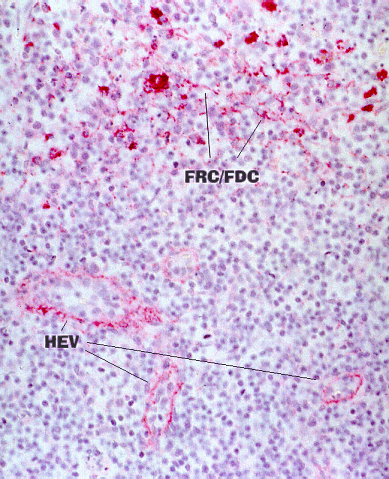Interview with Colonel Arthur Anderson, M.D.

What motivated you to work with Ebola?
I saw many presentations by Nancy Jaax, Tom Geisbert and Peter Jahrling over the
past several years at USAMRIID. In some of the talks Nancy showed tissue changes
in the spleen and lymph nodes that intrigued me. It seemed to me that important
structures involved in lymphocyte recirculation and homing were targets in the
ebola infection.
At the time, I was preparing a review for Seminars in Immunology with Steve Shaw
on how the fibroblastic reticular cells of lymphatic tissues are involved in
conducting molecular signals across tissue to places where circulating
leukocytes will see them. In addition, Bill Hall (another pathologist) had years
ago given me a slide of lymph node stained for ebola antigen and the antigen was
being expressed in the reticular cells that surround high endothelial venules.
It struck me as interesting but how this might be applied to understanding
pathogenesis had not become my objective until my interest in the fibroblastic
reticular cell conduit was juxtaposed with seeing these pathological images.

This interest lead to collaboration with Kelly Davis, Tom Geisbert and others on
a paper entitled "Pathology of Experimental Ebola Virus Infection in African
Green Monkeys: Involvement Fibroblastic Reticular Cells. Arch. Pathol. Lab.
Med. 121:805-8191997.
Had you known what you know now about Ebola, would you still have been
involved with it at the same level?
Yes. Viruses are very clever in the ways they borrow normal physiological
systems for infection, persistence and spread. When ebola showed me that
it "likes" cells that belong to an organ system that I hold expertise
about, there was no further reason for me to not work with ebola.
What do you think of the media's coverage of the Ebola and Marburg outbreaks?
Ebola is a frightening disease. Fortunately, outbreaks occur infrequently and
usually do not propagate beyond the initial contacts. I think the fear the
disease creates is responsible for creating a barrier that prevents further
spread. If it were not so quickly catastrophic in its course, more people would
be exposed and it would spread more widely and rapidly. The media creates more
fear, and this indirectly is protective because more people are informed of the
risk than are actually at risk.
What do you think future research on Ebola should look at?
I think it is clear that ebola is very clever for latching onto essential
physiological systems in its pathogenesis. It will take very sophisticated
molecular techniques applied at the borders of virology, cell biology and
immunology to uncover "factors" that can be exploited to select molecular
targets for vaccine design and anti-viral drug development.


